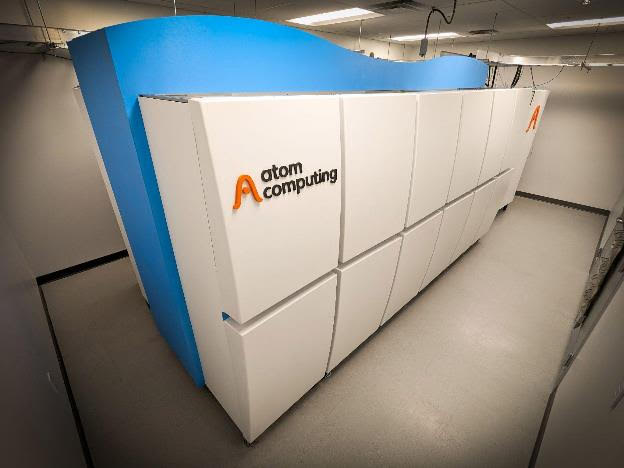 EMERGING TECH
EMERGING TECH
 EMERGING TECH
EMERGING TECH
 EMERGING TECH
EMERGING TECH
Quantum computing startup Atom Computing Inc. announced today the forthcoming availability of what it says is a 1,225-site atomic array, populated with 1,180 qubits, within the next generation of its quantum computing platform.
The company said the launch of its next-gen system will be a key milestone in the industry because it marks the first time that any company has crossed the 1,000-qubit threshold with a universal gate-based system.
Atom is pursuing what it says is the most pragmatic approach to building a quantum computer, using nuclear-spin qubits that are created with neutral atoms, which are those that possess an equal number of electrons and protons. The power of quantum computers comes from their reliance on qubits. Whereas traditional computers use “bits” that have a value of a zero or a one, qubits can be a zero, one or both at the same time, opening the door for multiple calculations to be performed simultaneously.
The potential of quantum computing is enormous, as these machines could eventually become exponentially more powerful than even the most advanced supercomputers of today. However, scientists have struggled to build working machines that have enough qubits to achieve supremacy over conventional types of computers.
The problem is that qubits are incredibly unstable and need to be stored within extreme environments to work properly. Atom’s unique approach is to create its qubits using neutral atoms that it manipulates with powerful light beams.
The startup says it will launch the first 1,000-plus qubit system early next year, a key milestone on the road toward building fault-tolerant computers that can solve large-scale problems. In order to build a truly fault-tolerant quantum computer, it will be necessary to scale to hundreds of thousands, if not millions of qubits, Atom says.
Besides the impressive scale of its machine, Atom claims a number of additional achievements including record-breaking coherence times, with its qubits now able to store quantum data for up to 40 seconds. It has also demonstrated it can measure the quantum state of specific qubits during computation and detect certain types of errors without disturbing other qubits, as well as an ability to correct quantum errors in real time.
Finally, it also claims to have made considerable progress with implementing the algorithms and controls needed to combine large numbers of physical qubits into a single, logical qubit that can perform more powerful calculations.
Atom Chief Executive Rob Hays said the main benefit of Atom’s unique atomic array technology is its ability to scale rapidly, as demonstrated by its leap from 100 to 1,000-plus qubits in a single generation. “Scaling to large numbers of qubits is critical for fault-tolerant quantum computing, which is why it has been our focus from the beginning,” Hays said. “We are working closely with partners to explore near-term applications that can take advantage of these larger scale systems.”
The next step for Atom is to work with its enterprise, academic and government customers to develop new applications that can take advantage of its enhanced systems when they become available in 2024.
Support our mission to keep content open and free by engaging with theCUBE community. Join theCUBE’s Alumni Trust Network, where technology leaders connect, share intelligence and create opportunities.
Founded by tech visionaries John Furrier and Dave Vellante, SiliconANGLE Media has built a dynamic ecosystem of industry-leading digital media brands that reach 15+ million elite tech professionals. Our new proprietary theCUBE AI Video Cloud is breaking ground in audience interaction, leveraging theCUBEai.com neural network to help technology companies make data-driven decisions and stay at the forefront of industry conversations.